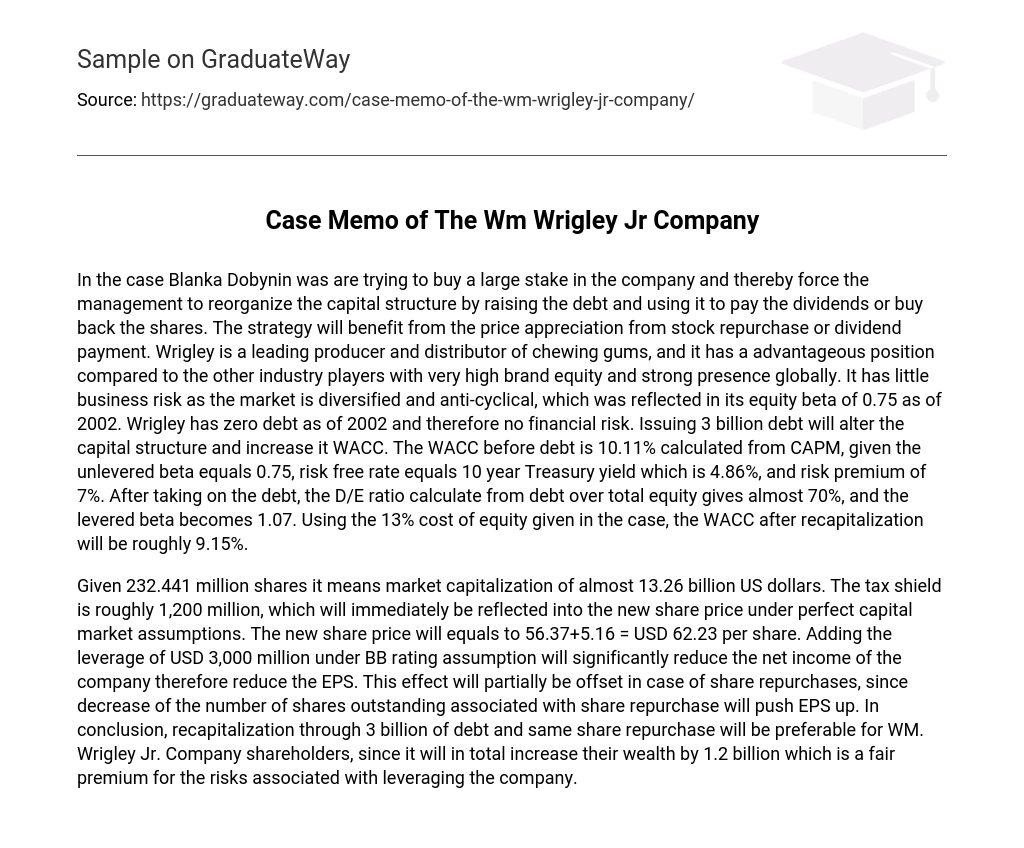Blanka Dobynin is attempting to acquire a significant portion of a company’s ownership in order to compel management to restructure its capital by increasing debt and using it for dividends or stock repurchasing. This strategy benefits from the appreciation of stock value resulting from these actions. Wrigley, a prominent chewing gum producer and distributor, has a strong global presence and high brand value, giving it an advantageous position within the industry. With a diversified and counter-cyclical market, Wrigley faces minimal business risk, as reflected in its equity beta of 0.75 in 2002. As of that year, Wrigley had no debt, resulting in no financial risk. However, issuing $3 billion in debt would change the capital structure and raise the weighted average cost of capital (WACC). The WACC prior to debt stood at 10.11% calculated using the Capital Asset Pricing Model (CAPM), with an unlevered beta of 0.75, a risk-free rate equivalent to the 10-year Treasury yield at 4.86%, and a risk premium of 7%. After acquiring the debt, the debt-to-equity ratio would reach approximately 70%, and the levered beta would become 1.07. With a given cost of equity at 13%, the post-recapitalization WACC would be approximately 9.15%.
With a total of 232.441 million shares, the market capitalization of the company reaches approximately 13.26 billion US dollars. The tax shield amounts to around 1,200 million and will have an immediate impact on the new share price, assuming perfect capital market conditions. Consequently, the new share price will be 56.37+5.16 = USD 62.23 per share. If we consider the leverage of USD 3,000 million with a BB rating assumption, it will significantly decrease the company’s net income and consequently reduce the EPS. However, in the case of share repurchases, the decrease in the number of outstanding shares will raise the EPS, offsetting this effect partially. In conclusion, WM Wrigley Jr. Company shareholders would benefit from recapitalization through 3 billion in debt and share repurchases, as it would increase their overall wealth by 1.2 billion. This increase reasonably compensates for the associated risks of leveraging the company.





